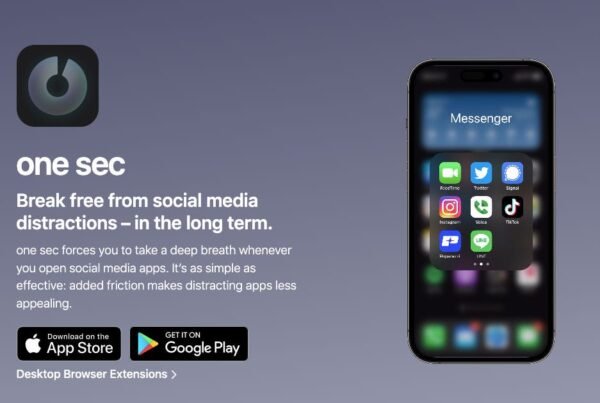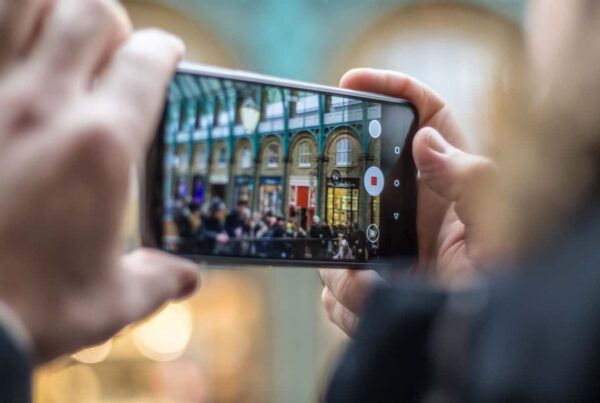The new question for our brave new digital world: “am I doing this for myself or for my online audience?”
Dear Realists,
I hope this finds you well.
I was getting ready to hit “publish” – a new post titled “Down with Metrics: The Exquisite Joys of an Unquantifiable Life”. But something didn’t sit right with me.
The central point of the post was about finding joys in activities away from screens, that are private, unquantifiable, unmeasurable – and yet filled with so much happiness. I used as an example the time I spend with my child. But then, in the seconds before publishing the post, all sorts of alarms went off in my head.
I didn’t feel comfortable talking about my child. There was nothing specific in there, I never mentioned their name. I didn’t talk about their age. But it made me feel icky talking about them. My privacy threshold is truly something else, huh?
I still think there is some value in the post, so I’d like to share it with you… while removing some personal details that made me uncomfortable. I hope it will still feel coherent.
My attitudes towards privacy are something from a different era. I know, I know.
thanks for being here.
Elena
Down with Metrics: The Exquisite Joys of an Unquantifiable Life
When I was five, my mother always told me that happiness was the key to life. When I went to school, they asked me what I wanted to be when I grew up. I wrote down ‘happy’. They told me I didn’t understand the assignment, and I told them they didn’t understand life.
What is your definition of happiness? Of success?
I’d venture to say that for most people, being wealthy is a sign of having succeeded in life. The same could be said for people who manage to amass large followings on social media – they are at the apex of our new, made-up caste system, revered for their influence and reach.
Quantifiable, visible metrics seem to be the only things that matter to many… and they are invariably equated to happiness.
But I don’t think we should conflate the two.
I can’t stop thinking about the public lives of chaotic billionaires – three in particular come to mind, whom you have all heard about. Their personal lives are in shambles, they spew hateful, dangerous messages, filled with misinformation. They need and seek attention – any kind of attention – as if it were oxygen. And they are admired by millions of people.
Not by me.
At the risk of appearing like I’m armchair diagnosing, I personally don’t think these three chaotic billionaires are very happy, anyway.
A private, unquantifiable life
I take care of my child every morning up until lunchtime and work in the afternoons. By privilege (I’m very fortunate to be able to do this) but also by choice. It’s the honor of my lifetime to do this.
Some people I know think these mornings are wasted time. They think my child might as well have been with the nanny all day. Some have actually told me, “your child is so little and wouldn’t know the difference anyway.” But I strongly disagree.
Above all, my child is my zen teacher, making me slow down and appreciate the spectacular beauty of what most people see as mundane. My little one has taught me how to look, how to really look and pay attention to life around us.
This morning, during story time, I had an epiphany. The time I am spending with my child is completely unquantifiable. It doesn’t generate money for anyone. It can’t be measured in social media metrics. It’s completely private and hidden and unmeasurable. But you know what? These days, weeks, and months are filled with pure happiness.
The digital rat race
A lifetime ago, when I was making my documentary The Illusionists I was immersed – daily – in research about the ugliest aspects of consumerism… how some of the world’s largest corporations and media companies disseminate images of unattainable beauty ideals in order to make everyone insecure about their own natural appearance… so they would be compelled to buy products and treatments.
In my research for The Realists, I am constantly confronted with the unattainable life ideals promoted not just by companies and big media, but also by regular people on their social media.
The implicit message of Big Tech is that to be happy and to be successful you need to be visible online and to share every moment of your life. Everyday. Algorithms of the biggest tech platforms reward people who post frequently.
And yet.
Posting online and checking how many likes and comments a post has gotten can generate anxiety. It’s as if these numbers are never enough. “I want more!” may be the mantra of most online users.
The point of this post is to say that there is value in a private life, in unseen, unshared moments. It’s such a beautiful feeling to be fully present, in reality, without needing to perform or share what is happening with an invisible audience and wait for their feedback and reactions. You know, real life. Circa 2006.
Even before the baby years, if I’m thinking of my happiest moments, they all boiled down to human connection.
What was your happiest moment online? Does it measure up to something that happened to you in real life?
Are your happiest online moments related to metrics and having a post go viral? Are they all related to your hope of increasing your popularity and influence? Or something else?
At the end of The Illusionists I encouraged viewers to “follow the money” and seek out activities that are removed from consumerism. Riding a bike. Walking in the park. Talking to a friend. Browsing books at the library. The key question to identify such an activity was “does this activity make anyone earn any money?”
For The Realists, I have a different measuring system and question in mind. “Am I doing this because I genuinely want to do it or because I am performing for an online audience?”
Because at the end of the day, I strongly believe that if you do something with the goal to become more popular online, you lose sight of your authentic self. By changing ever so slightly your activities to make that follower count go up, you ultimately change yourself. What makes you, you.
The digital rat race is very similar to gambling at a casino. The only winners are Meta, TikTok et. al.
The house always wins.
So, when you post, when you connect with people on social media, remember how to use these powerful tools, in a way where you are not used by them.
The Truth Behind Visible Metrics
The goal of these tech giants is not to connect people. It’s to keep them scrolling, seeing ads, so these platforms will make more money. As artist Ben Grosser told me during our interview:
This metric, this number of likes you get… it’s really training you: “post things that get more likes”. The entire system is based on people posting things that will be the most engaging to everyone else. Social media platforms are dependent on… not whether we have a good experience; they’re dependent on how much content we give them.
The more content we give them, the better it is for them, then they have more information to understand what we like, what we don’t like, and they can use that in advertising to suggest new events… to suggest new friends… to keep us further engaged. So the presence of these numbers is influencing us in all kinds of ways.
And now go ahead and spend the rest of your day as we used to do before 2007. For yourself – not an invisible online audience. How does it make you feel? Do you notice any differences?
Elena




